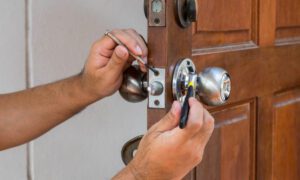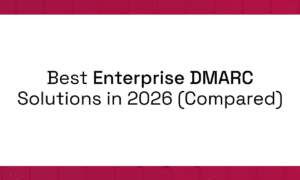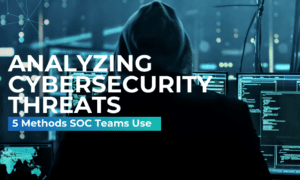Real security builds peace of mind by creating a safe environment that reduces anxiety and fear. By implementing advanced security measures like smart cameras, AI surveillance, and environmental sensors, you can feel more in control of your surroundings and focus on enjoying life without constant worry.
This sense of safety extends beyond individual homes, fostering stronger communities and improving overall well-being. Building a culture of real security involves developing a security mindset, collaborating with local law enforcement, and implementing layered security approaches.
Regular threat assessments and updates are crucial to stay ahead of evolving risks and maintain effective protection. Here’s what we’ll cover in this article:
✔️ Key features of modern security systems
✔️ Psychological advantages of a secure environment
✔️ Building a culture of real security
Let’s explore how real security can transform your life and create lasting peace of mind.
Key Features Of Modern Security Systems
DIY Vs. Professional Installation Options
Choosing between DIY and professional installation such as those offered by AMPLock depends on your specific needs, budget, and technical comfort level. DIY systems offer flexibility and cost savings. They often come with user-friendly setup instructions and can be customized to fit your exact requirements.
You can add or remove components as needed, giving you full control over your security setup. However, professional installation ensures expert setup and configuration. Trained technicians can optimize camera placement, integrate complex systems, and provide valuable advice on security strategies.
They often offer ongoing support and maintenance, which can be reassuring for those less comfortable with technology. Consider the complexity of your desired system when making this decision. Simple setups with a few cameras and sensors might be suitable for DIY installation.
More comprehensive systems involving multiple components, home automation integration, or complex wiring might benefit from professional expertise. Ultimately, both options can provide effective security solutions.
Assess your budget, technical skills, and long-term security goals to determine which approach best suits your situation. Remember, the most important factor is choosing a system that you can confidently use and maintain for optimal protection.
Smart Cameras And AI Surveillance
Modern security systems now incorporate advanced smart cameras and AI surveillance technologies. These cutting-edge tools significantly boost monitoring capabilities and reduce response times. Smart cameras can detect motion, recognize faces, and even identify specific objects or behaviors.
When paired with AI, these systems can analyze footage in real-time, alerting you to potential threats instantly. AI-powered surveillance goes beyond simple recording. It can learn patterns, distinguish between normal and suspicious activities, and make intelligent decisions.
This means fewer false alarms and more accurate threat detection. You’ll receive notifications only when truly necessary, saving time and reducing stress. These systems offer remote viewing options, allowing you to check in on your property from anywhere using your smartphone or tablet.
Some advanced setups even integrate with home automation systems, giving you comprehensive control over your security environment.
Smart Locks And Access Control
Smart locks and access control systems revolutionize how you secure and access your property. These devices replace traditional keys with digital alternatives like PIN codes, fingerprints, or smartphone apps. You can grant or revoke access remotely, perfect for managing deliveries, service providers, or guests.
Many smart locks log entry and exit times, providing a detailed history of who entered your property and when. This feature proves invaluable for both security and management purposes. Some systems allow you to set temporary access codes, ideal for short-term rentals or occasional visitors.
Access control systems extend beyond front doors. They can secure specific rooms, safes, or areas within a building. This granular control enhances overall security and allows for customized access levels for different individuals or groups.
Environmental Sensors And Alerts
Environmental sensors play a crucial role in modern security systems by monitoring for potential hazards beyond intruders. These devices detect various threats such as fire, carbon monoxide, water leaks, or extreme temperatures. By identifying these risks early, they help prevent damage and protect lives.
When these sensors detect an issue, they trigger immediate alerts. You’ll receive notifications on your phone, allowing for quick action even when you’re away. In some cases, these systems can automatically contact emergency services, ensuring rapid response to critical situations.
Advanced environmental monitoring systems can integrate with your home automation setup. For example, if a water leak is detected, the system might automatically shut off the main water supply to minimize damage. This proactive approach to environmental threats adds an extra layer of protection to your property.
Psychological Advantages of a Secure Environment
Reducing Anxiety and Fear
A secure environment secured plays a crucial role in alleviating anxiety and fear among individuals. When you feel safe in your surroundings, you experience a sense of calm and peace that positively impacts your mental well-being.
Enhanced home security measures significantly reduce anxiety levels and boost feelings of control for homeowners. By implementing security systems, you create a protective barrier that helps you relax and feel more at ease in your own space.
This increased sense of safety allows you to focus on other aspects of your life without constant worry about potential threats.
Enhancing a Sense of Control and Ownership
Security systems empower you by providing a greater sense of control over your environment. When you have the ability to monitor and protect your property, you feel more connected to your surroundings and confident in your ability to manage potential risks.
The psychological impact of this empowerment extends beyond mere protection. It fosters a deeper connection to your home and belongings, reinforcing your sense of ownership. Knowing that your property is 300% less likely to be broken into when equipped with a security system further strengthens this feeling of control.
Why Security Is Linked to Overall Well-Being
The connection between security and overall well-being is profound. Feeling secure in your environment contributes significantly to your mental health and quality of life. When you’re not constantly worried about potential threats, you can dedicate more energy to personal growth, relationships, and pursuing your goals.
A secure environment promotes better sleep, reduces stress levels, and allows for more relaxed social interactions. These factors combine to create a positive impact on your overall well-being, leading to improved physical and mental health outcomes.
The Community Effect on Mental Health
Community-wide security measures have a positive effect on mental health beyond individual homes. When an entire neighborhood or area prioritizes safety, it creates a supportive and secure environment for all residents. Collective security efforts foster a sense of unity and shared responsibility among community members.
This shared commitment to safety encourages social connections, reduces isolation, and promotes a feeling of belonging – all crucial factors for maintaining good mental health.
Influence on Property Value and Neighborhood Reputation
Security systems have a notable impact on property values and neighborhood reputations. Areas with robust security measures are often perceived as more desirable places to live, attracting potential buyers and increasing property values.
Enhanced security contributes to a positive neighborhood image, making it more attractive to families and individuals seeking safe communities. This improved reputation can lead to increased investment in the area, better maintenance of properties, and a stronger sense of community pride among residents.
By prioritizing security, you not only protect your immediate surroundings but also contribute to the overall appeal and value of your neighborhood. This collective benefit reinforces the importance of individual and community-wide security efforts in creating thriving, desirable living environments.
Building A Culture Of Real Security
Developing A Security Mindset
To create a strong security culture, you need to foster a security mindset within your organization. This involves encouraging everyone to think critically about potential risks and take proactive steps to mitigate them.
Start by providing regular training sessions that cover common security threats and best practices. Make security a part of your company’s core values and reward employees who demonstrate good security habits. Promote open communication about security concerns and create channels for reporting suspicious activities.
Encourage staff to question unfamiliar requests, especially those involving sensitive information. By making security a shared responsibility, you’ll build a more resilient organization that’s better prepared to face evolving threats.
Collaboration With Local Law Enforcement
Partnering with local law enforcement can significantly boost your security efforts. These relationships provide valuable insights into regional crime trends and potential threats specific to your area. Set up regular meetings with local police to discuss security concerns and share information.
Consider inviting law enforcement representatives to participate in your security planning sessions or conduct safety audits of your premises. They can offer expert advice on improving physical security measures and emergency response protocols.
This collaboration also ensures faster response times during incidents and can help deter criminal activity around your property.
Layered Security Approaches In Institutions
Implementing a layered security approach is crucial for protecting institutions like schools, hospitals, and government buildings. This strategy involves using multiple security measures that work together to create a comprehensive defense system.
Start with physical barriers such as fences, locked doors, and security checkpoints. Add technological solutions like surveillance cameras, access control systems, and intrusion detection devices.
Don’t forget about human elements – trained security personnel and staff awareness programs are essential components of any layered approach. Each security measure should complement the others, creating overlapping layers of protection that are difficult for intruders to bypass.
Regular Threat Assessments And Updates
Conducting regular threat assessments is vital for maintaining effective security. These evaluations help you identify vulnerabilities in your current systems and anticipate potential future risks.
Schedule periodic reviews of your security protocols, involving both internal staff and external experts if possible. Stay informed about new security technologies and emerging threats in your industry. Update your security measures accordingly, ensuring they remain effective against evolving risks.
Remember, security is an ongoing process – what works today may not be sufficient tomorrow. By staying vigilant and adaptable, you’ll be better equipped to protect your organization in the long run.
Conclusion
Real security goes far beyond just locks and alarms. It’s about creating an environment where you can truly relax and thrive. Throughout this article, we’ve explored how modern security systems have evolved to offer comprehensive protection for your home and family.
From smart cameras with AI capabilities to environmental sensors that detect potential hazards, today’s security solutions are designed to give you peace of mind in every aspect of your life.
These advanced technologies not only protect your physical space but also contribute to your mental well-being by reducing anxiety and enhancing your sense of control.



































